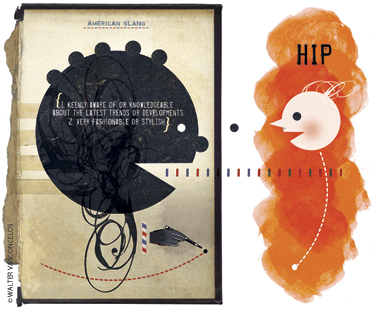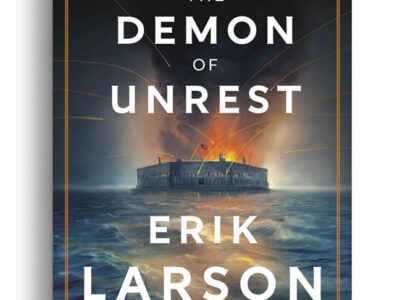
Tom Dalzell C’71 has a passion for slang, and while it may not be the first discipline that comes to mind when we think about scholarly endeavor, Dalzell studies nonstandard and vernacular English with the insight and rigor of a sociologist.
“Slang serves a comparatively small function in relation to standard language,” he explains, “but it establishes and reinforces the status of a speaker within a group, and makes the values and vision of that group transparent.”
Recently, Dalzell led an overhaul of the Partridge Dictionary of Slang and Unconventional English, an imposing, two-volume work originally compiled in the late 1930s. It was a six-year effort that required a team of editors from across the English-speaking world.
The dictionary, published by Routledge, hadn’t been revised since the eighth edition of 1984. Dalzell and his colleagues broadened and updated it. “We started from the ground up,” he says. “We consulted the eighth edition and carried over some entries, but we basically created the universe that we found from 1945 on.”
Even in the digital age, lexicography is still slow work, he notes. “The project basically involved reading popular literature since 1945—largely fiction, though not exclusively—some song lyrics, some underground newspapers from the ’60s, and over 200 screenplays.”
Oh, and slang is just a hobby. By day, Dalzell is a labor lawyer.
His interest in vernacular English first emerged when he was an undergraduate at Penn, majoring in American Civilization. Two professors were especially influential.
“Gordon Kelly in American Civilization introduced me to the joy of popular culture,” he recalls, “and Robert Regan, an English professor, introduced me to the joys of 19th-century American dialect fiction, like Joel Chandler Harris, Mark Twain, Artemis Ward, and others.”
An able student, Dalzell graduated in just five semesters. But something other than academic zeal had motivated him to work so hard, he notes. “My college years were during the high-water mark of social activism, and the call to be part of social change was very strong.”
Dalzell followed that call to rural California, where he would spend the following eight years working for the United Farm Workers of America, organizing strikes and drives. “The nobility of workers trying to exercise control over their lives, the spirit of the community, and the possibility of victory all appealed to me,” he reflects. At the same time, under the guidance of the UFW’s general counsel, Dalzell became a lawyer, reading for the California bar independently. “I think I’ve always done things in an unconventional way,” he notes. “I channeled my love of learning into reading the law.”
Disillusioned by what he saw as its failure to adapt to changing times, Dalzell left the UFW in the late ’70s, and decided to make sense of his experience by writing a semi-autobiographical work of fiction that he hoped would be the Great American Novel.
Unable to interest any publishers, Dalzell put his manuscript aside. But the effort hadn’t been wasted; as he wrote, slang and dialect had reemerged as a consuming interest. He began collecting slang books and ephemera, and one day, a New York dealer sent him a 1923 flapper dictionary.
“A light bulb went on in my head,” Dalzell remembers. “You could really do an interesting book, looking at the language of American teenagers over the decades, I thought.” He eventually pitched the idea to Merriam-Webster, and the result was Flappers 2 Rappers, published in 1996.
“The book goes decade by decade from the time of the flapper in the 1920s to the rapper of the 1990s,” Dalzell explains. “Each chapter discusses the forces shaping youth slang in that decade, followed by an A-to-Z list of the words themselves.”
The book was a success, and a second, the Slang of Sin, followed. It’s organized vice by vice, he notes wryly: “There’s alcohol, drugs, gambling, horse racing, commercial sex, crime, and also some tongue-in-cheek things that have been considered vices over the years, such as tattoos and coffee.”
Over the course of his work, Dalzell has made one striking discovery.
“It’s really fascinating to trace the influence of African-American slang on mainstream American slang, beginning in the late 1930s with swing jazz,” he observes. “The slang of American youth, and to a large extent Americans in general, has really been shaped by African-American vernacular English.”
Though Dalzell’s avocation as a sage of slang is in many ways just as demanding as his vocation as an attorney for the International Brotherhood of Electrical Workers in Walnut Creek, California, sacrifice has never bothered him.
“I don’t go fishing, I don’t play golf, and I don’t watch television—except for The Sopranos,” he admits. “There’s a level of frustration certainly, but when you’re doing something that you passionately like, you find time.”
—David Perrelli C’01




